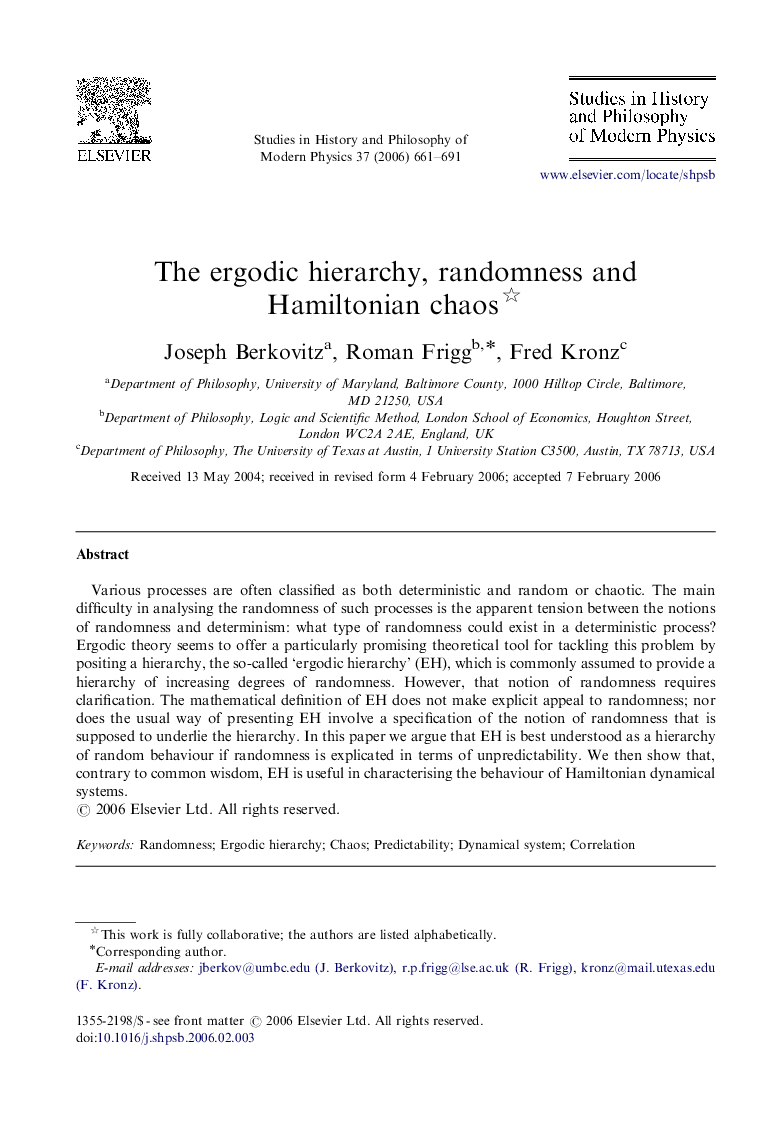| Article ID | Journal | Published Year | Pages | File Type |
|---|---|---|---|---|
| 1161693 | Studies in History and Philosophy of Science Part B: Studies in History and Philosophy of Modern Physics | 2006 | 31 Pages |
Various processes are often classified as both deterministic and random or chaotic. The main difficulty in analysing the randomness of such processes is the apparent tension between the notions of randomness and determinism: what type of randomness could exist in a deterministic process? Ergodic theory seems to offer a particularly promising theoretical tool for tackling this problem by positing a hierarchy, the so-called ‘ergodic hierarchy’ (EH), which is commonly assumed to provide a hierarchy of increasing degrees of randomness. However, that notion of randomness requires clarification. The mathematical definition of EH does not make explicit appeal to randomness; nor does the usual way of presenting EH involve a specification of the notion of randomness that is supposed to underlie the hierarchy. In this paper we argue that EH is best understood as a hierarchy of random behaviour if randomness is explicated in terms of unpredictability. We then show that, contrary to common wisdom, EH is useful in characterising the behaviour of Hamiltonian dynamical systems.
